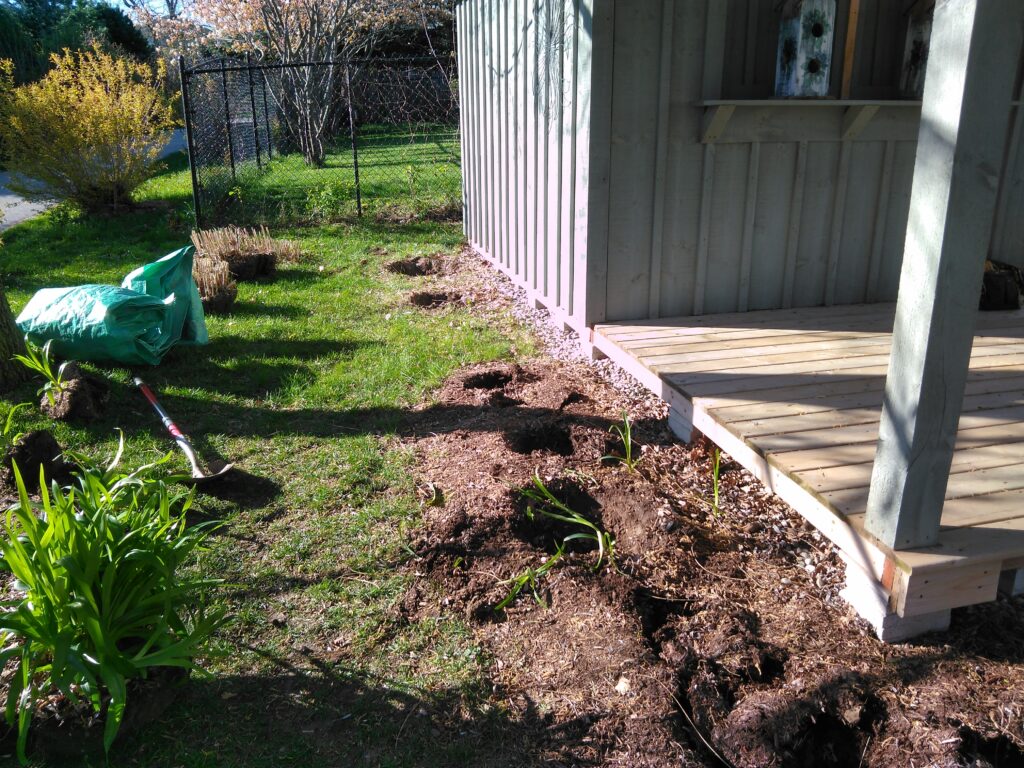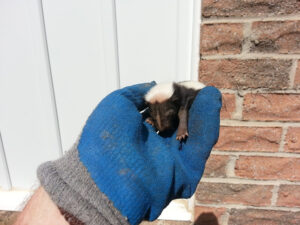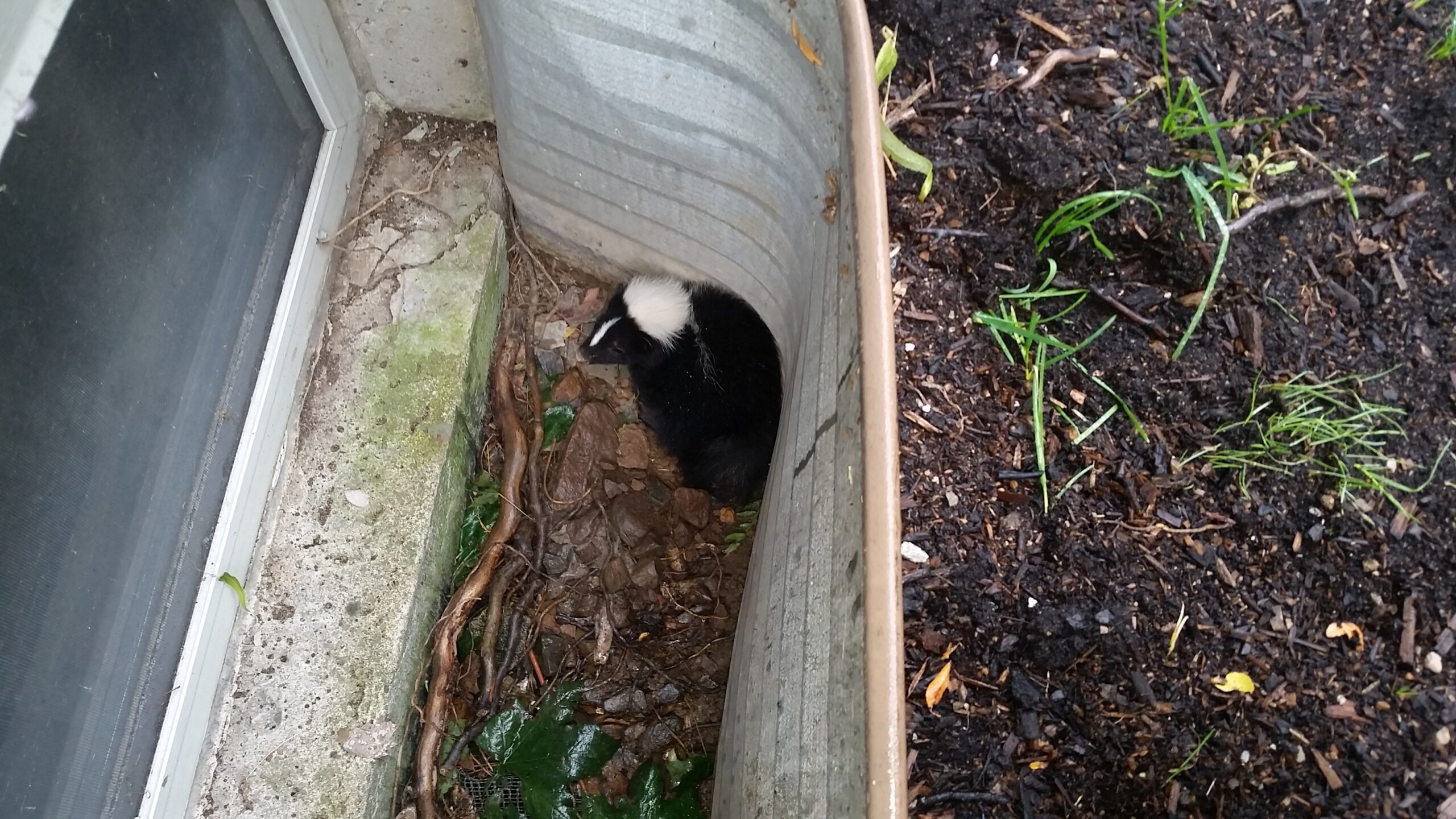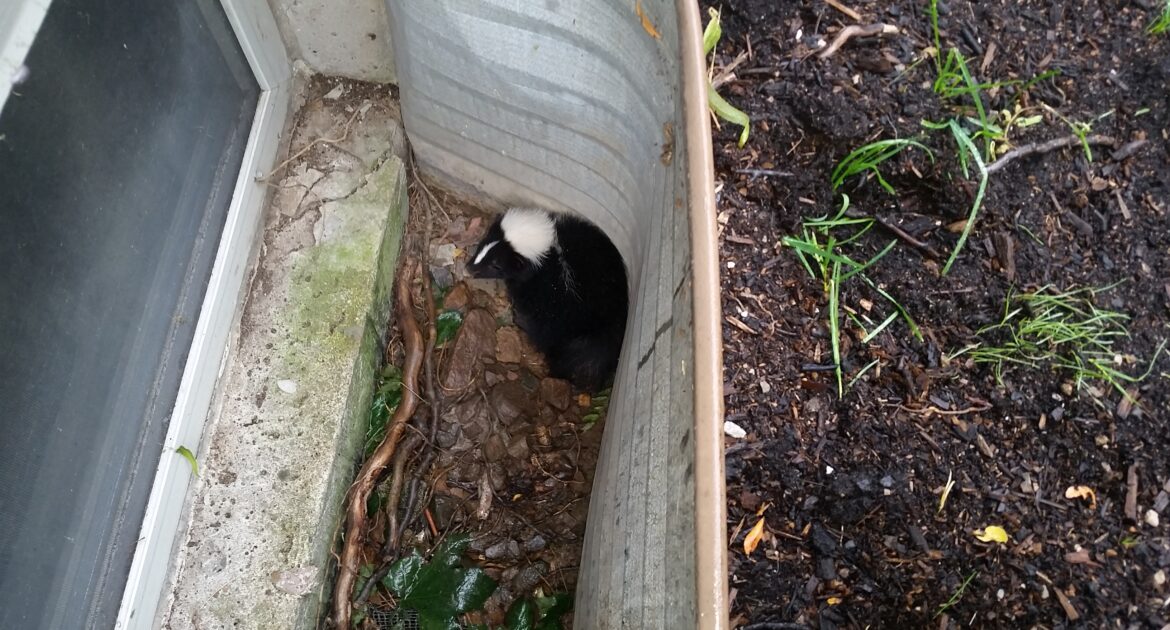Skunks have a worse reputation than they deserve because of their strong smell. Though equipped to defend themselves, they are not aggressive and can be beneficial by eating harmful pests. Nevertheless, there are some very good reasons why you don’t want skunks on your property. In addition to giving off a low-level musky odour even when not spraying, skunks can cause structural damage by digging out burrows and can tear up your lawn looking for food. While skunk removal is an effective solution, it is better to deter them from your property in the first place. Knowing what attracts them can help you make your lawn less desirable to them.
What Do Skunks Look for in Winter Dens?
Skunks do not hibernate, but during the winter, they enter a state called torpor. Their metabolism slows down and they spend most of their time in a near-dormant state. However, when the weather is warm enough, they revive and go out to forage for food, then return to their dens and their previous state of inactivity.
As the weather turns colder, skunks look for places to make a winter den. Skunks cannot jump or climb, so they make their burrows close to the ground. They are skilled at digging but prefer to make a den out of an existing hole. Therefore, they may be drawn to spaces under sheds, decks, wooden porches, and concrete front steps.

What Attracts Skunks to a Property?
In addition to potential winter den sites, skunks are also attracted to your property by food. Skunks are omnivores that eat both plant and animal matter. They love earthworms, grubs, and insect larvae, so they are often attracted by freshly laid sod. When it comes to edible plants, skunks are heavily attracted to sunflowers seeds and birdseed but will also eat fruit and acorns. Garbage, grills, and pet food have all been known to attract skunks.
How Can You Deter Skunks From Your Property?
If you can eliminate sources of food that particularly attract skunks, they may be much less interested in building a den there. Skunks are attracted to garbage but not as adept at getting to it as raccoons. Keeping in it a metal container with a lid should be enough to keep skunks out. Store your grill in a shed or garage after first cleaning it thoroughly. Never leave pet food to sit outside. If you feed your pet indoors, you avoid leaving any spilled morsels or crumbs for the skunks to find. If you have trees that drop fruit or nuts, you should try to clean up the yard to remove these as soon as possible.
In addition to food, skunks are also looking for places to make winter dens, starting in the fall. You can deter them from making themselves at home by closing up any openings that you find under your house and removing any wood piles or lumber, making your home less appealing and less accessible to skunks.
Removing possible sources of food and shelter should be effective at deterring skunks from your property. Some people also recommend homemade deterrents for extra protection. It is believed that the smell of rags soaked in ammonia, socks filled with mothballs, or old clothes that still bear a human scent can help keep skunks away. After you have cleaned up, you can try to place some of these items strategically around your yard as an extra layer of protection. However, it is not clear how well these deterrents work, so they shouldn’t be your first line of defence and are no substitute for cleaning up your yard.

Humane Wildlife Control Services, Including Skunk Removal
Skedaddle believes that wildlife conflicts have humane and effective solutions that are beneficial to both people and animals. Removal is only part of the services we offer. Find out more about the decontamination and exclusion aspects of our process.




